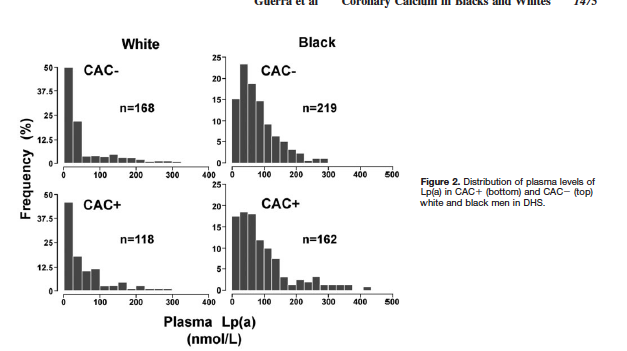
Educational forum on Lp(a) and related areas. Professor UC San Diego.
15 subscribers
How to get URL link on X (Twitter) App






https://twitter.com/Lpa_Doc/status/1517015148866637824
 2/4- Does being heterozygous for ABCG5 explain LDL-C >700?
2/4- Does being heterozygous for ABCG5 explain LDL-C >700?

 2/4 It shows the corrected LDL-C is ~12-16 mg/dL lower than the lab value, and that most of the effect of pelacarsen is via lowering Lp(a). It also shows the gross inaccuracy of the 30% correction of Dahlen formula, which should now be retired to medical history.
2/4 It shows the corrected LDL-C is ~12-16 mg/dL lower than the lab value, and that most of the effect of pelacarsen is via lowering Lp(a). It also shows the gross inaccuracy of the 30% correction of Dahlen formula, which should now be retired to medical history.

https://twitter.com/Lpa_Doc/status/1483981389531779072I believe one culprit was this lovastatin paper- Note the technically correct English, but incorrect message. Seems quite "lawyerly"- nobody can accuse you of lying, but yet again you did not tell the truth. "Lp(a) levels increased 33%"


https://twitter.com/The_Nutrivore/status/1481287099643207680
 This shows if one adjust for apoB, p-value is now non-significant. Next tweets will explain why.
This shows if one adjust for apoB, p-value is now non-significant. Next tweets will explain why. 



https://twitter.com/Lpa_Doc/status/14417989565817323602/4 The 52 yo can be explained by presence of long-standing DM, especially if poorly controlled: the 48 yo with CAD and family history typifies life-long elevated Lp(a). The presence of family history implies a genetic risk factor like Lp(a); (next)...

 Why so high?- polyphenol concentration is greatest when olives are less ripe and diminishes as olives ripen. So, to get high polyphenols one must pick them early, but at significantly less yield (so not typically done due to economic reasons)
Why so high?- polyphenol concentration is greatest when olives are less ripe and diminishes as olives ripen. So, to get high polyphenols one must pick them early, but at significantly less yield (so not typically done due to economic reasons) 


 2/21 My goal for the last Class was to do a history of Lp(a), but on second thought this is likely a fool's errand for sound bites on twitter, as many people will be left out, so I will focus on the first paper on Lp(a) and review it in detail
2/21 My goal for the last Class was to do a history of Lp(a), but on second thought this is likely a fool's errand for sound bites on twitter, as many people will be left out, so I will focus on the first paper on Lp(a) and review it in detail


https://twitter.com/Lpa_Doc/status/14113598574379417612/11 Its not A as she was compliant as she filled all scripts by EPIC chart. In fairness this could not be known from question
